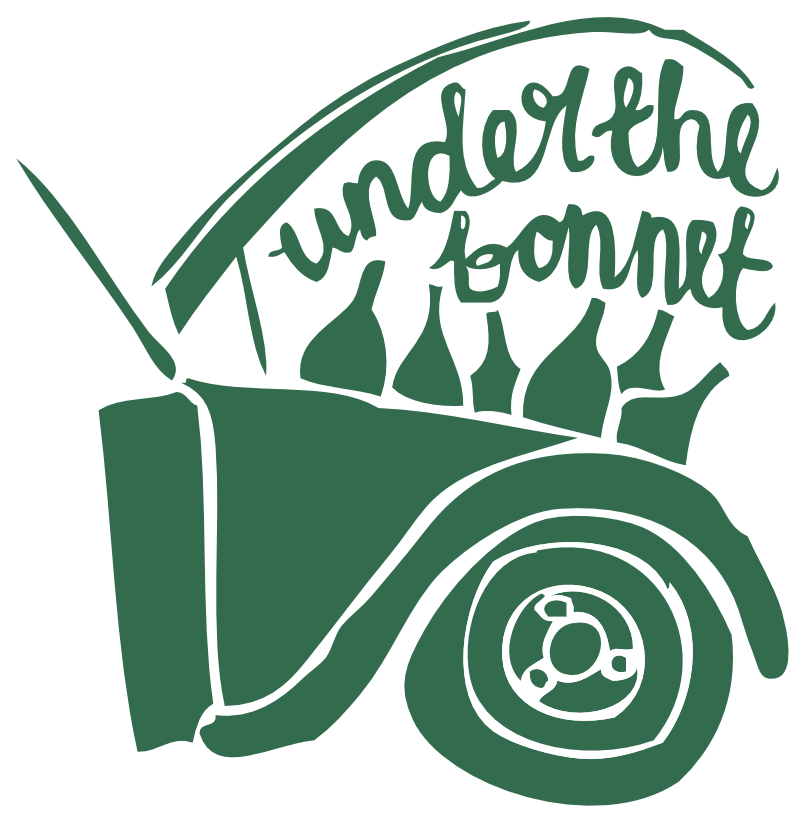Thomas Boutin
France, Loire, Anjou, Rochefort-sur-Loire, Angers
Thomas Boutin started his own winemaking project in 2008, with only 1.8 hectares. In 2011, he inherited a compact winery and vines from his mentor, and has progressively built up the number of hectares. He farms two hectares in Rochefort-sur-Loire and one hectare in Saint Aubin. He is evolving as a winemaker, and experiments whilst learning and finding his style.
Having studied oenology and worked in larger wineries, he is passionate to keep the approach small-scale with minimal intervention. All wines are made without any use of chemicals, are unfined and unfiltered with little use of sulfur.
Tell us about your 2018 harvest: What were your challenges? What went particularly well?
2018 has been difficult but with a good result. We've had loads of rain in June which caused mildew. It stopped in July and the heat allowed us to fight the mildew, which then resulted in a good harvest both quality and quantity wise.
What do you anticipate for the 2019 harvest?
I always wait until September to have a better idea of the end result. August is a really important month when it comes to maturity of the wines. For the moment what I can see is that the buds are developing well from the outside, but I cannot tell yet how good the quality is.
What is your personal favourite vintage you have made to date and why?
I have two: 2012 and 2016 when it comes to quality, even though the yield was very small. I haven't made loads of money but the wines turned out amazing.
Which wines do you enjoy drinking besides your own?
Normally I enjoy drinking full-bodied wines but at the moment I drink light reds. There is no particular region that I prefer, I am more about discovering new wines, especially from outside of France.
Are there any winemakers whose influence has been particularly important?
Benoît Landron has helped me out immensely. We enjoy sharing our wines and I will always be helpful to him as he has helped me to establish myself as a winemaker.
Also, there are other winemakers who have taught me a lot and who are less into natural wines but are still organic certified. For example Benjamin Delobel. There are always more things to learn as there are always new challenges coming up.
What can you tell us about your future plans?
I want to reduce the use of copper in the vineyard. Also, I want to create a new cuvée. At first I thought about using barrels but now I feel like I am at a point where I'm more connected with the earth and I want to try making a cuvée using amphora.
Further down the road I'd like to plant Pinot d'Aunis and Grolleau Gris and have some fun experimenting making new cuvées.
Now in stock
White
NEW 2017 Celsiane - Chenin
"100% chenin, from five different plots. Two plots consist of 60-70 year old vines, planted after the second world war in mass selection. The other three are between 20-30 years old in clonal selection: one with coarse grains and normal maturity, the second one with very early coarse grains, I sometimes pick it up a week ahead of the other vines, and the last with small grains and a normal maturity. The fermentation took place over one year. This wine has a fresh mouth, very ripe fruit, almost dry fruit with hints of honey. Warm notes of plum which remind of Alsatian wines and give the wine a bit of pep."
2016 Charabia - Chardonnay
"Small yield due to frost (loss of 5 - 10%) mildew (loss of 35 - 40%)and heat. The harvest went well in the end with good maturity of the grapes. It is a well-balanced wine with notes of exotic fruit and a lot of freshness. An easy drinking Chardonnay."
Red
NEW 2017 La Quilette - Gamay (60%), Cabernet Franc (35%) & Grolleau (5%)
"Small yield due to frost, but as the rest of the year has been pretty balanced we didn't get the feared mildew. Maceration and fermentations occured separately for each grape variety. I macerated for 7-8 days with whole bunches before pressing. The tanks were assembled the following spring when fermentations were complete. Harvest started already on August 23. This was the earliest I have ever had to start as the grapes were maturing very fast due to warm weather. Compared to previous vintages, the 2017 vintage has less acidity, more structure and more notes of compote red fruits, but it's still a light wine."
Sweet
2011 Topaze - Chenin
Thomas' first harvest. Hand-harvested from three vineyard selections. Direct-press with indigenous yeasts used, three years in barrel. No filtration, racked twice to remove lees before bottling.
For any wholesale and stock enquiries, please contact hello@winesutb.com


